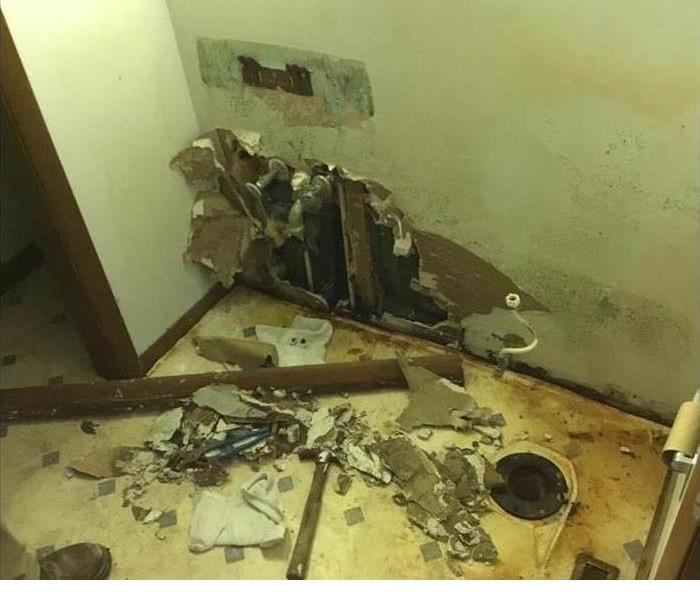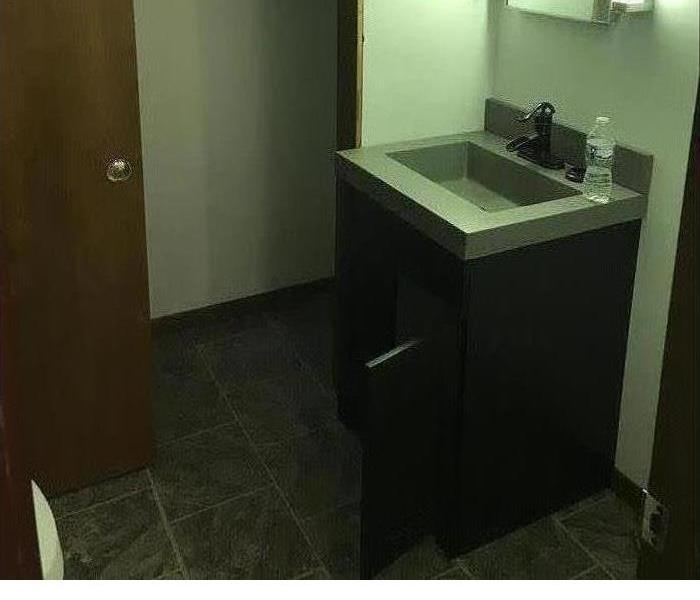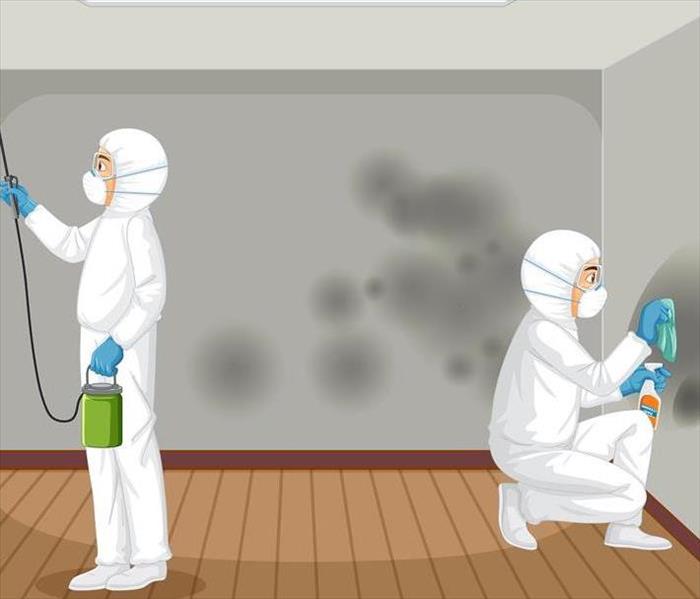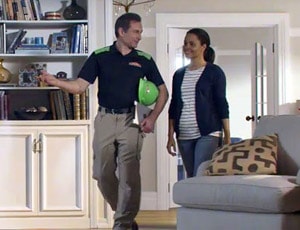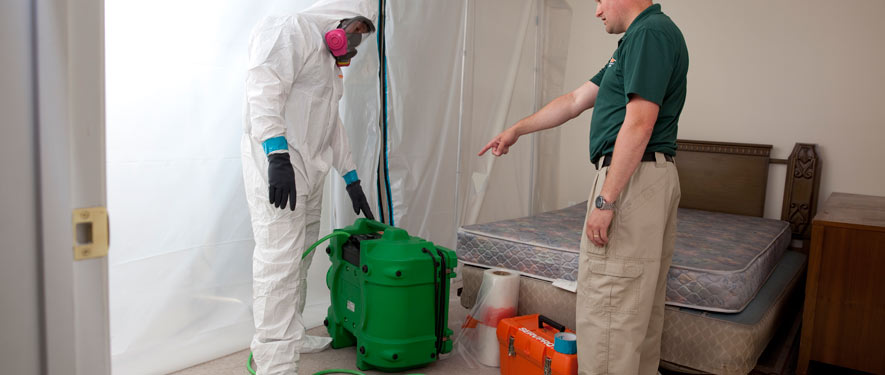
Understanding Mold and Our Remediation Process
Mold has the potential to cause health effects and can spread through your property in as little as 48 hours. SERVPRO of Boone and Clinton Counties understands mold and mold growth and has the training and expertise to remediate the mold in your home or business.
Have Mold Related Questions? Call Us Today – (765) 659-9600
Understanding Mold
Microscopic mold spores exist naturally almost everywhere, indoors and outdoors, so removing all mold from a home or business is impossible. Some restoration businesses advertise “mold removal” and even guarantee to remove all mold, which is a fallacy. Consider the following mold facts:
- Mold is present almost everywhere, indoors and outdoors.
- Mold spores are microscopic and float along in the air, and they may enter your home through windows, doors, or AC/heating systems or even hitch a ride indoors on your clothing or a pet.
- Mold spores thrive on moisture. Mold spores can quickly grow into colonies when exposed to water.
- Before mold remediation can begin, any sources of water or moisture must be addressed. Otherwise the mold may return.
- Let your nose lead the way. Mold often produces a strong, musty odor, and can lead you to possible mold problem areas.
- Even higher than normal indoor humidity can support mold growth. Keep indoor humidity below 45 percent.
The Mold Remediation Process
Every mold damage scenario is different and requires a unique solution, but the general mold remediation process stays the same. The steps listed below illustrate our “typical” process:
- Emergency Contact - (765) 659-9600
The mold cleanup and restoration process begins when you call us. Our representative will ask a series of questions to help us determine the necessary equipment, resources, and personnel.
- Inspection and Mold Damage Assessment
We carefully inspect your property for visible signs of mold. Mold feeds on cellulose and water and can be hidden from plain view. We use various technologies to detect mold and hidden water sources.
- Mold Containment
Our professionals use various containment procedures to prevent the spread of mold. We may use advanced containment procedures like negative air chambers to isolate the contaminated area with physical barriers and negative air pressure to keep the mold spores from spreading during the cleanup process. All fans and heating and cooling systems will be turned off to prevent the spread of mold.
- Air Filtration
Our specialized filtration equipment allows our Professionals to capture microscopic mold spores out of the air. We utilize powerful “air scrubbers” and HEPA vacuums to prevent the spread of these mold spores while the mold remediation is in process.
- Removing Mold and Mold-Infested Materials
The mold remediation process depends on the amount of mold growth and the types of surfaces on which the mold appears. We’ll use antifungal and antimicrobial treatments to eliminate mold colonies and to help prevent new colonies from forming. It may be necessary to remove and dispose of mold-infested porous materials, like drywall and carpeting, to remediate heavy mold growth.
- Cleaning Contents and Belongings
We clean your furniture, decorative items, curtains, clothing, and other restorable items affected by mold. We use a variety of cleaning techniques to clean and disinfect your belongings. We’re also trained to remove odors and deodorization using fogging equipment.
- Restoration
Depending on the level of mold damage, drywall, subfloors, and other building materials may have been removed. Restoration may involve minor repairs, such as replacing drywall, painting, and installing new carpet; or it may entail major repairs such as the reconstruction of various areas or rooms in a home or business. The restoration step gets your home or business back to normal.




 24/7 Emergency Service
24/7 Emergency Service


